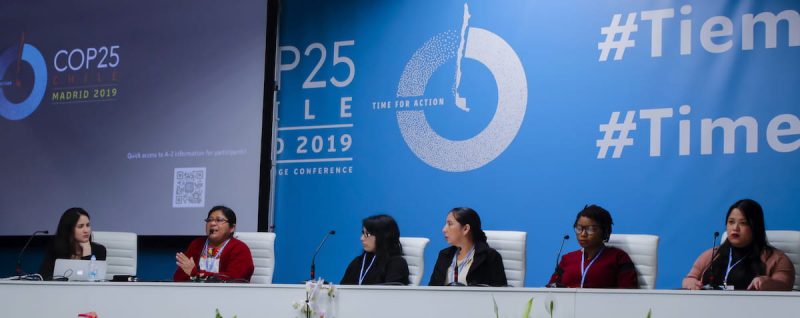In conversation with young feminists on climate justice

Young women across Africa, Asia and Latin America are playing a bold role in calling for urgent climate action from governments and corporations, and promoting locally-based approaches to climate issues. However, the part they play within global movements is still often invisible or unrecognized. Within our network, we’ve clearly seen how the challenges of climate change are vastly different for young women from the Global South than from the north, including a digital divide and differing experiences of gender inequality.
To amplify young feminist solutions and create space for alternative perspectives on the climate crisis, our partner FRIDA the Young Feminist Fund launched the Climate and Environmental Justice Media Fellowship in 2019 in partnership with Open Global Rights (OGR), a human-rights media platform. The 8-month fellowship supported four young feminists from the Global South to write and publish investigative solutions-based articles on OGR and to gather at the UNFCCC 25th Conference of the Parties (COP25).
Through the GAGGA network, FRIDA co-organized a panel at COP25 around feminist solutions and narratives on the climate crisis where their fellows were facilitators and participants. The panel was one of five parallel sessions collectively hosted by GAGGA partners, which gave space to community-based voices and perspectives at the climate event.
As those who will face the worst consequences of climate change, young women and girls from the Global South have crucial proposals and perspectives on community-based solutions, resourcing and partnership, healing work, care, and promoting inclusive narratives and decision-making. To dive deeper into these topics we caught up with two of the FRIDA fellows, Tarini Manchanda and Wangüi wa Kamonji.
“There needs to be a shift towards resourcing processes, resourcing people and partnership. Partnership in solidarity that actually intends to build relationship and is transparent about its values, its assumptions, its desires because sometimes people assume they don’t have a role other than giving money.”
To read the interview with Wangũi, click here.
“While I understand the need for the larger structures and maybe resources or knowledge that could be provided by external organizations, it’s still important that the voices of communities don’t just become PR for organizations but are actually incorporated into decision-making processes.“
To read the interview with Tarini, click here.
You can read Wangũi and Tarini’s work here on Open Global Rights, as well as articles from the other fellows Beatrice Tulagan and Vanessa Daza Castillo.



